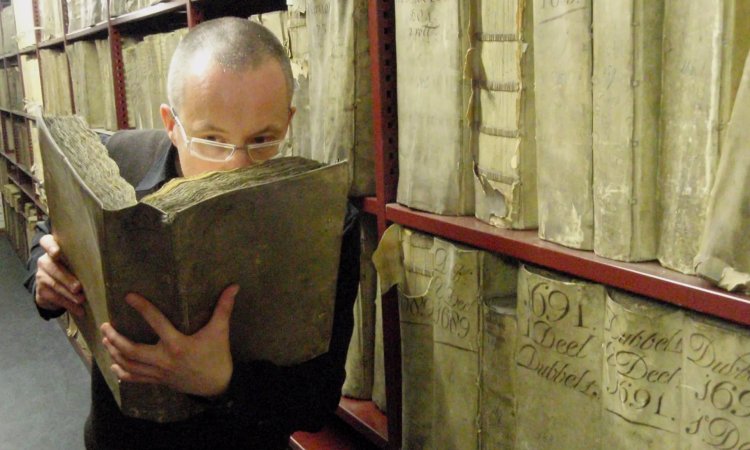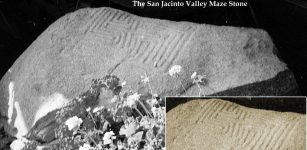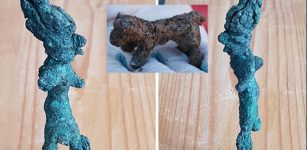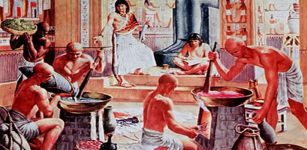Odeuropa – Unusual Project Will Recreate The Smells Of Old Europe And Store The Scents In A Library
Jan Bartek – MessageToEagle.com – Have you ever wondered what Europe smells like? Most likely it’s not something we think about on daily basis, but a group of scientists has now decided to create a library of scents, collecting, identifying, and even recreating the aroma that shaped our cultures.

Professor Matija Strlic smells a historical book in the National Archives of the Netherlands. Credit: Matija Strlic
The Odeuropa consortium has been awarded a €2.8M grant from the EU Horizon 2020 program for the project, “ODEUROPA: Negotiating Olfactory and Sensory Experiences in Cultural Heritage Practice and Research”.
Many will argue this is pointless research and a complete waste of money, but scientists involved in this unusual project say it’s an important step in persevering Europe’s historical heritage.
“Smell is an urgent topic which is fast gaining attention in different communities. Amongst the questions the Odeuropa project will focus on are: what are the key scents, fragrant spaces, and olfactory practices that have shaped our cultures? How can we extract sensory data from large-scale digital text and image collections? How can we represent smell in all its facets in a database? How should we safeguard our olfactory heritage? And — why should we?
The project bundles an array of academic expertise from across many disciplines—history, art history, computational linguistics, computer vision, semantic web, museology, heritage science, and chemistry, with further expertise from cultural heritage institutes, intangible heritage organizations, policy makers, and the creative and fragrance industries. The team will develop novel methods in sensory mining and olfactory heritage science to collect information about smell from multinational digital text and image collections,” the science team writes on their website.
“Once you start looking at printed texts published in Europe since 1500 you will find loads of references to smell, from religious scents – like the smell of incense – through to things like tobacco,” said Dr William Tullett of Anglia Ruskin University in Cambridge, a member of the Odeuropa team and the author of Smell in Eighteenth-Century England.

Geertgen tot Sint Jans, Adoration of the Magi, 1480 – 1485. Two of the gifts offered to Jesus were scents. Myrrh literally translates as bitter and smells accordingly.
“It will [also] include discussions of particular types of noses from the past – the kinds of people for whom smell was significant and what smell meant to them,” said Tullett, adding that one example would be physicians.
“That could take us into all kinds of different scents, whether that is the use of herbs like rosemary to protect against plague, [or] the use of smelling salts in the 18th and 19th centuries as an antidote to fits and fainting,” he said.
The end result of the study sounds promising if you’re interested in the scent of old Europe.
The historical scent data will be curated and published in an online Encyclopaedia of Smell Heritage, describing the sensory qualities and meanings of the scents and tracing the storylines of key scents, fragrant places, and olfactory practices.
This database will become an archive for the olfactory heritage of Europe, enabling future generations to access and learn about the scented past.
Written by Jan Bartek – MessageToEagle.com – AncientPages.com Staff Writer










